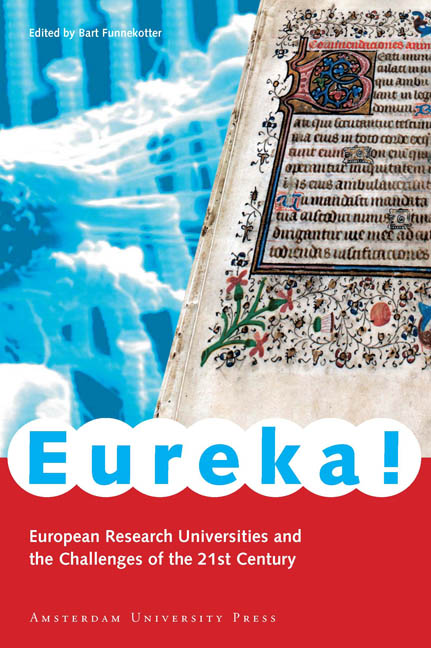Book contents
- Frontmatter
- Contents
- Foreword
- Introduction: Challenges of the Twenty-first Century
- Cambridge: Cambridge University
- Edinburgh: University of Edinburg
- Geneva: Université de Genève
- Heidelberg: Ruprecht-Karls-Universität
- Helsinki: Helsingin Yliopisto
- Leiden: Universiteit Leiden
- Louvain: Katholieke Universiteit Leuven
- Milan: Università Degli Studi Di Milano
- Munich: Ludwig-Maximilians-Universität
- Oxford: Oxford University
- Stockholm: Karolinska Institutet
- Strasbourg: Université Louis Pasteur
Louvain: Katholieke Universiteit Leuven
Published online by Cambridge University Press: 23 January 2021
- Frontmatter
- Contents
- Foreword
- Introduction: Challenges of the Twenty-first Century
- Cambridge: Cambridge University
- Edinburgh: University of Edinburg
- Geneva: Université de Genève
- Heidelberg: Ruprecht-Karls-Universität
- Helsinki: Helsingin Yliopisto
- Leiden: Universiteit Leiden
- Louvain: Katholieke Universiteit Leuven
- Milan: Università Degli Studi Di Milano
- Munich: Ludwig-Maximilians-Universität
- Oxford: Oxford University
- Stockholm: Karolinska Institutet
- Strasbourg: Université Louis Pasteur
Summary
Catholic University of Louvain in facts and figures:
Founded in 1425
29,254 students
7,725 staff
Budget € 512 million
Rumour has it that the municipality has anchored the paving stones in Louvain's Ladeuze Square in a bed of cement, hoping to deprive demonstrating students of an easy source of weapons. The stones played a major role in the 1960's when students agitated publicly for a more democratic university system and an exclusively Dutch-language university. ‘Leuven Vlaams’ – Louvain Flemish – reached its apex of success in 1968, when the Catholic University of Louvain split into two separate institutions:The Dutch-language branch, Katholieke Universiteit te Leuven (KULeuven), located in Louvain and Kortrijk, and the Francophone Université Catholique de Louvain in Ottignies-Louvain-la-Neuve. As one of the founding members of LERU, KULeuven is the home of the League's administrative offices.
In the centre of the square a giant beetle seems pinned to the clouds at the top of a 23metre pin. KULeuven donated the sculpture, created by Belgian artist Jan Fabre, to the city of Louvain in the academic year 2000-2001 to celebrate its 575-year history. The Totem, as it is named, represents an ode to science and beauty.
The sculpture is appropriately located in front of the impressive university library. The library's walls are inscribed with the names of other universities, mainly American ones, who provided the necessary funds for the reconstruction of the library after the violence of two World Wars. The library had been damaged deep into its paper heart; it was this grievous vandalism that earned the Germans the nickname ‘Huns’ in 1914. They had attacked one of the oldest Catholic universities, founded in 1425 and home to Erasmus's Institute of Humanism a century later. It was this Catholic identity that led to years of closure that began during the French occupation of 1797. Today, this identity is mainly visible in the courses that are a mandatory part of every curriculum here: philosophy in the first year and interpretations of world religion in the fourth.
Louvain eventually grew to be Flanders’ largest university, serving nearly 30,000 students.
- Type
- Chapter
- Information
- Eureka!European Research Universities and the Challenges of the 21st Century, pp. 89 - 101Publisher: Amsterdam University PressPrint publication year: 2005



